When Muhammad Ali took on Superman
- Published
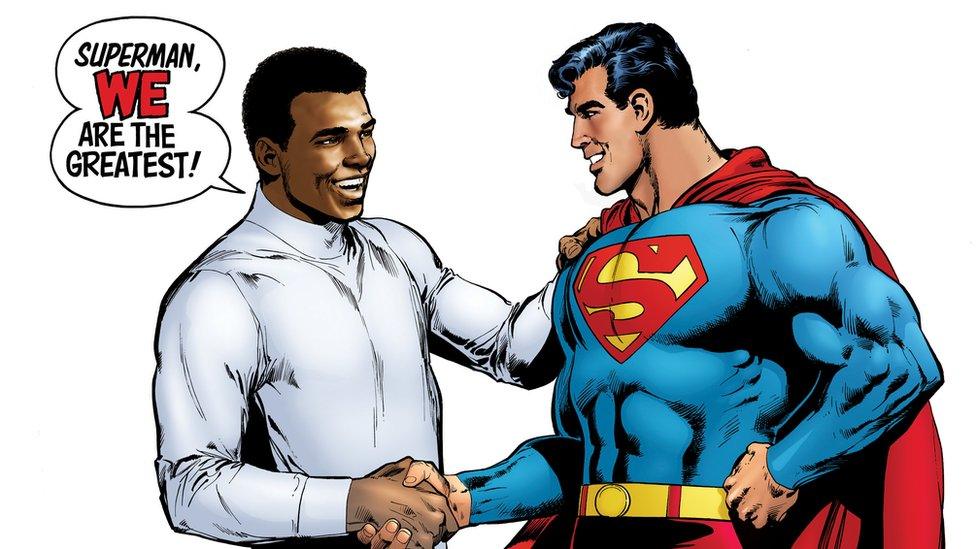
The year is 1978 and Muhammad Ali is about to take on the most powerful man on Earth. In the audience is a stellar cast - everyone from The Beatles to Pele to Andy Warhol to Batman. Muhammad Ali is in the boxing ring with Superman.
The iconic cover of Superman vs Muhammad Ali has become one of the most shared images on social media since the death of the boxing legend, but the tale of how it came to be reveals a lot about Muhammad Ali's America.
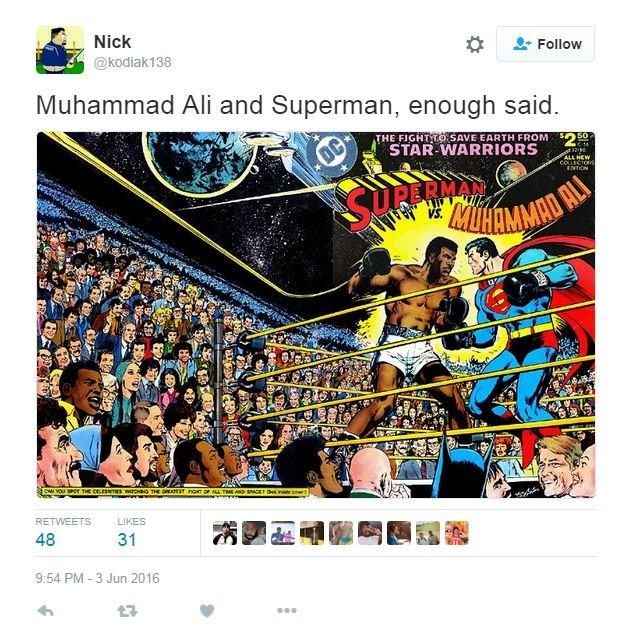
"When young comic book artists Jerry Siegel and Joe Shuster took their creation Superman, initially drawn as a villain, to DC Comics they had no idea that within three months, the tales of the superhero would sell a million copies. America wanted Superheroes," artist Neal Adams, external, who drew the iconic cover and co-wrote the story, told BBC Trending.
Cut to few decades later when Julius (Julie) Schwartz, an editor of DC Comics, pitched a new story idea.
"One day at a meeting, Julie said: 'Why don't we have Superman fight Muhammad Ali?'" says Adams. "We all said: 'you're crazy!' but Julie felt that a real-life hero fighting a fantasy hero would be something special."
The comic's plot was that an alien race called the Scrub wanted to pit their champion against the greatest fighter on Earth. If he lost, Earth would be destroyed. Superman was a likely choice but Ali suggested he would be a better representative, as a human rather than an exile from the planet Krypton. So the two entered a qualifying bout. We won't give away the ending, but at one point, this happens:
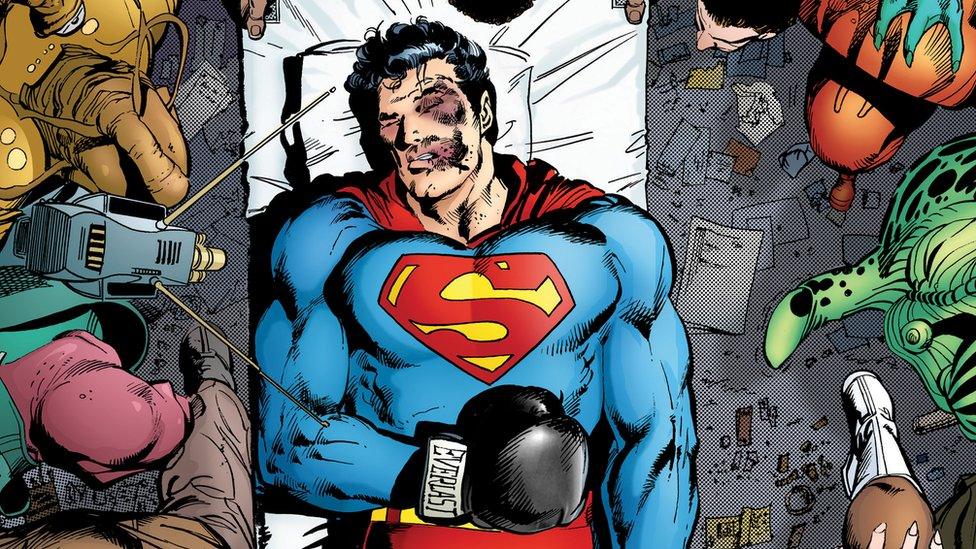
To negate Superman's powers the fight took place under a red sun
In the real world, Muhammad Ali's prowess in the ring had been proved many times, (although at the time of publication, in February 1978, Leon Spinks was the world heavyweight champion; Ali went on to regain the title in September of that year). But Ali was not considered a hero by all in America.
Ali had made made clear his stance as a conscientious objector to the Vietnam War. He had been convicted of draft evasion, external on 28 June 1967, for refusing induction into the army. In reality, Ali could have been a poster boy for the US Army, and it was unlikely that he would have been made to physically step on to a battlefield, external. But Ali didn't want a "sweetheart deal". He declared that he "had no quarrel with the Vietcong". The remarks, which were made a year before the first significant anti-Vietnam protests, were especially controversial, external at the time, considering he had converted to Islam.
And although that was almost a decade earlier than the comic's release, the decision made by DC Comics for Ali to fight the most powerful white superman in myth was still a particularly daring act for the time, says Adams.
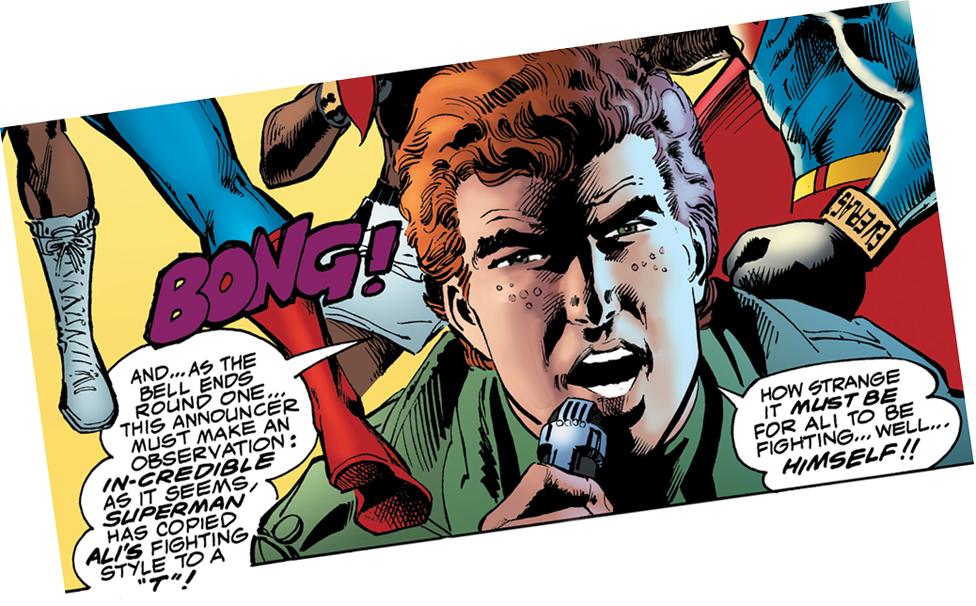
"DC Comics had a lot of liberal New York young Jewish men working for them at the time, who understood prejudice," says Adams. "And to depict Ali as on par with a white mythical Superman, was a subtle political act," says Adams. "The pen is mightier than the sword."
The process of collaborating with Ali's team over his image came with some challenges. They initially weren't happy with the first cover as drawn by DC's Joe Kubert, finding it too "crude", says Adams. He was drafted in to "soften" Kubert's initial vision. Adams's cover won the approval of Ali's team.
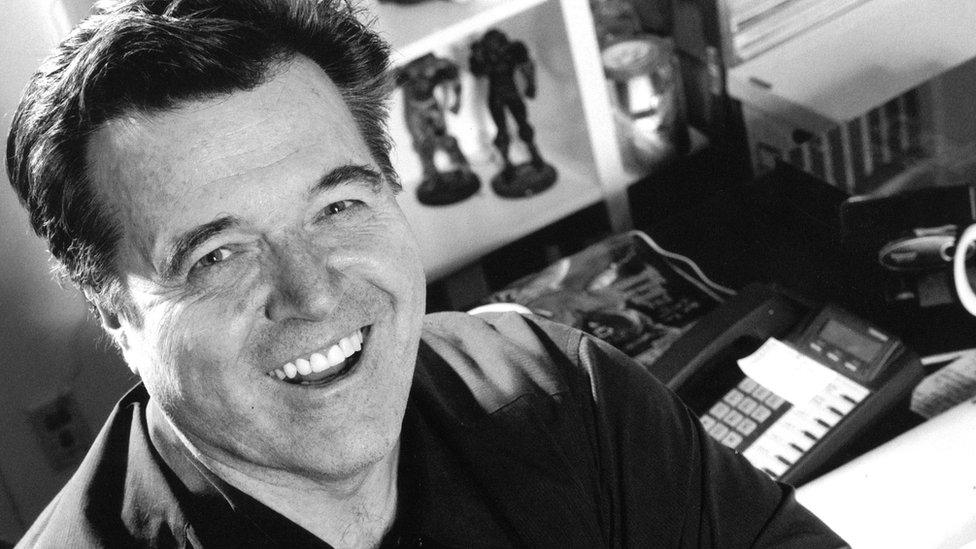
Many have called Neal Adams's cover "the greatest" Superman comic illustration
There have been rumours , externalthat Ali insisted that a plot point was included where he learned Superman's true identity (Clark Kent). Adams says that if this conversation happened, he was not privy to it.
However, Ali did make one request. He had fully embraced the religion of Islam, and he wanted the DC Comics team to fly to Chicago to get the seal of approval of his spiritual leader Elijah Muhammad, external.
When Ali beat Leon Spinks in News Orleans on 15 September 1978 to regain the world heavyweight boxing title, he encouraged the world at his press conference to buy Superman vs Muhammad Ali. They duly obliged. "The comic would be published in every free country in the world," says Adams.
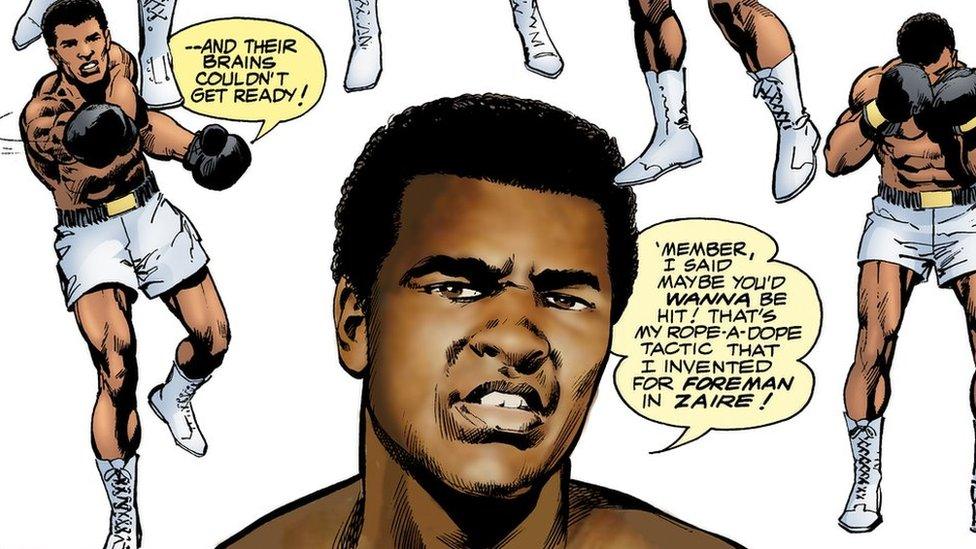
"It meant so much to so many people," Adams says. "To this day, I have African Americans come up to me at comic book conventions with their old weathered copy of Superman vs Muhammad Ali for me to sign. It's still extremely emotional."
Adams told us that that he wasn't close to Ali, although he did hear that the boxer loved the comic and would proudly show his friends his own copy when they visited his home. But the moment that stands out for Adams was the press conference after Ali beat Spinks in New Orleans.
"I fought my way through the crowd to Ali's side for a photograph," Adams says, "I put my hand on his shoulder and it felt like stone. He radiated power and strength."
Blog by Megha Mohan, external
Next story Why women are uber annoyed in Saudi

Saudi Arabia's $3.5bn investment in Uber taxi service reignites women's driving rights debate. READ MORE
You can follow BBC Trending on Twitter @BBCtrending, external, and find us on Facebook, external. All our stories are at bbc.com/trending.